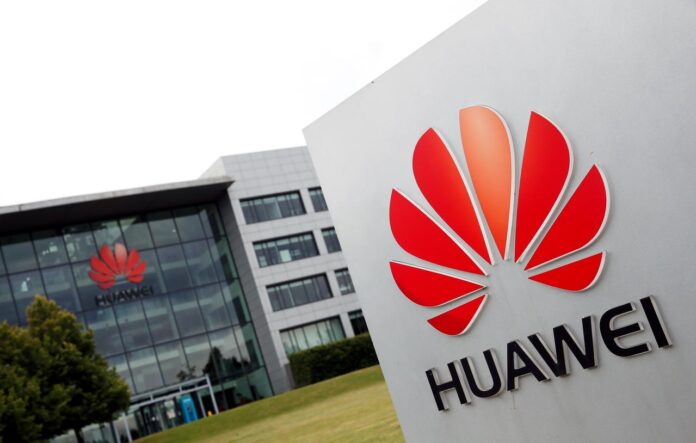LONDON: Prime Minister Boris Johnson ordered Huawei equipment to be purged completely from Britain’s 5G network by 2027, risking the ire of China by signalling that the world’s biggest telecoms equipment maker is no longer welcome in the West.
The seven-year lag will please British telecoms operators such as BT, Vodafone and Three, which had feared they would be forced to spend billions of pounds to rip out Huawei equipment much faster.
From the end of the year, it will be illegal for operators to buy any 5G equipment from Huawei, Britain’s Digital, Culture, Media and Sport Secretary Oliver Dowden told parliament.
He said the decision would mean a delay to the roll-out of 5G by two to three years, and add costs of up to 2 billion pounds ($2.5 billion).
The United States had long pushed Johnson to reverse a decision he made in January to grant Huawei a limited role in 5G. London has also been dismayed by a crackdown in Hong Kong and the perception China did not tell the whole truth over the coronavirus.
Dowden said the cyber arm of Britain’s GCHQ eavesdropping agency, the National Cyber Security Centre, had told ministers it could no longer guarantee the stable supply of Huawei gear after the United States imposed new sanctions on chip technology.
Telecoms companies will also be told to stop using Huawei in fixed-line fibre broadband within the next two years.
“This has not been an easy decision, but it is the right one for the UK telecoms networks, for our national security and our economy, both now and indeed in the long run,” Dowden said.
“By the time of the next election, we will have implemented in law an irreversible path for the complete removal of Huawei equipment from our 5G networks.”
Huawei said the decision was a political one which was about US trade policy and not security. It was bad for Britain and its phone users, it added.
“It threatens to move Britain into the digital slow lane, push up bills and deepen the digital divide,” a spokesman said.
In what some have compared to the Cold War antagonism with the Soviet Union, the United States is worried that 5G dominance could lead towards Chinese technological supremacy that could define the geopolitics of the 21st century.
With faster data and increased capacity, 5G will become the nervous system of the future economy – carrying data on everything from global financial flows to critical infrastructure such as energy, defence and transport.
After Australia first raised alarms about the risk of 5G being hijacked by a hostile state, the West has become steadily more worried about Huawei. White House national security adviser Robert O’Brien is meeting representatives of France, the UK, Germany and Italy in Paris this week to discuss security, including 5G. Dowden said Britain was working with its intelligence allies to create a group of rivals to Huawei to build 5G networks, naming firms from Finland, Sweden, South Korea and Japan.
“The first thing we need to do is ensure that we protect the other two vendors in this market, so: Nokia, and Ericsson,” Dowden said. “Secondly we need to get new suppliers in, that starts with Samsung, and it starts with NEC.
END OF ‘GOLDEN ERA’?
Hanging up on Huawei, founded by a former People’s Liberation Army engineer, marks an end to what former Prime Minister David Cameron cast as a “golden era” in ties, promoting Britain as Europe’s top destination for Chinese capital.
Trump has repeatedly asked London to ban Huawei, which Washington calls an agent of the Chinese Communist state – an argument that has support in Johnson’s Conservative Party. Huawei denies it spies for China and says the United States wants to frustrate its growth because no US company offers the same range of technology at a competitive price.
China says banning one of its flagship global technology companies would have far-reaching ramifications and last week Beijing’s ambassador to London warned that a U-turn on Huawei would send out a bad message to other Chinese businesses.




